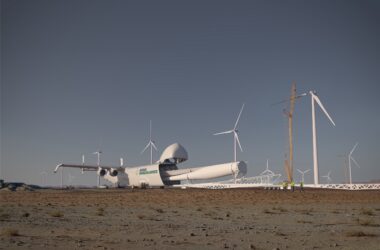On November 28, 2023, Virgin Atlantic will operate the world’s first passenger flight across the Atlantic using 100% sustainable aviation fuel (SAF). This pioneering journey from London Heathrow to New York JFK represents a significant step forward for the aviation industry’s sustainability efforts.
The UK Civil Aviation Authority has approved the flight after extensive evaluations with Rolls-Royce, Boeing and others. While SAF is currently limited to a 50% blend, this collaborative initiative aims to demonstrate its viability as a complete replacement for conventional jet fuel.
What is SAF: Sustainable Aviation Fuel

Sustainable Aviation Fuel (SAF) is an eco-friendly alternative to traditional fossil fuel-based aviation fuel. It is produced from renewable biomass and waste feedstocks such as used cooking oils, plant oils, municipal waste, non-fossil CO2, and agricultural residues.
Unlike conventional petroleum-derived jet fuel, SAF’s raw materials are sustainable and can be replenished rapidly, contributing to a circular economy.
SAF is produced through several methods, with the Hydroprocessed Esters and Fatty Acids (HEFA) process being the most mature and widely used currently. These production pathways ensure the resulting biofuel is chemically similar to conventional jet fuel, allowing it to serve as a “drop-in” fuel without modifications to aircraft engines or fueling infrastructure.
One of SAF’s key benefits is its potential to substantially reduce aviation’s greenhouse gas emissions over its lifecycle. The CO2 absorbed by SAF feedstocks offsets the CO2 later emitted when the fuel is burned, resulting in lifecycle carbon reductions of up to 80% compared to fossil jet fuel. Exact emissions reductions vary based on feedstock, production method, and supply chain factors. SAF can also decrease emissions of other pollutants like sulfur oxides and particulates, improving air quality around airports and at cruising altitudes.
However, SAF adoption faces several challenges. Production costs currently exceed conventional jet fuel, driven by feedstock and early-stage market factors. Feedstock availability and scalable production processes must also be developed to meet aviation’s demand. Moreover, regulations limit SAF to a 50% blend with fossil jet fuel, though research into higher blends and 100% SAF flights is ongoing. The aviation industry is collaborating with governments and regulators to increase SAF production and use to meet carbon reduction goals and mitigate air travel emissions.
Aviation Industry leaders have stressed the importance of government incentives and a supportive regulatory environment in establishing a robust SAF supply chain. Virgin Atlantic’s goal of using 10% SAF by 2030 aligns with the sector’s net-zero emissions target for 2050, with SAF expected to comprise 65% of fuel.
We hope Virgin Atlantic’s historic flight sets the trajectory for a sustainable aviation future. With the industry mobilized around SAF, this venture could catalyze progress in making renewable jet fuel viable and accessible. It’s a collective effort to transform air travel for generations to come through cleaner fuels and greener skies.
TLDR Summary:
- Virgin Atlantic’s upcoming transatlantic flight using 100% SAF marks a historic moment in aviation.
- SAF reduces carbon emissions significantly but faces production cost and infrastructure challenges.
- Government support and regulation are crucial for the industry’s shift to sustainable fuel sources.
- This flight is a significant step towards the aviation industry’s ‘net-zero’ emissions goal by 2050.







